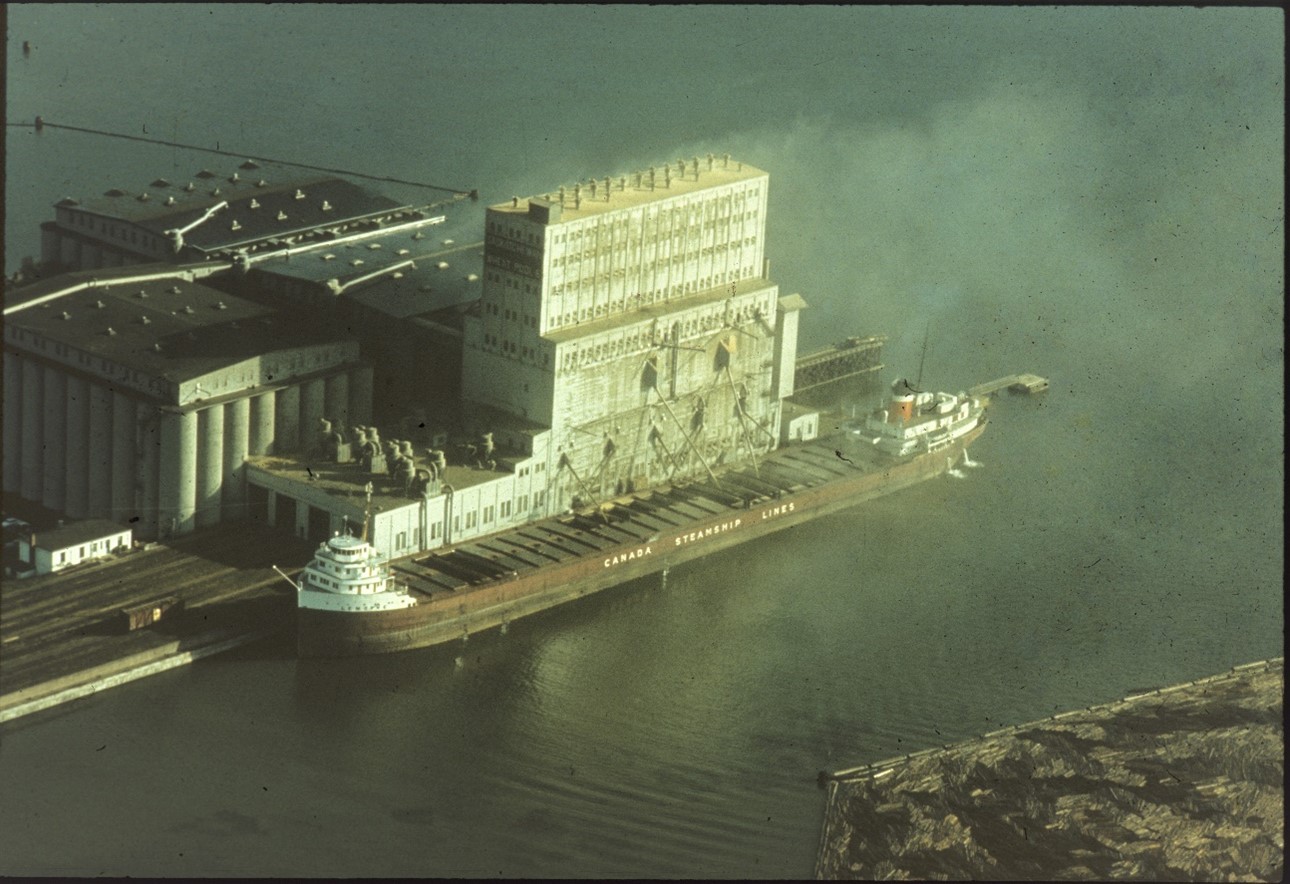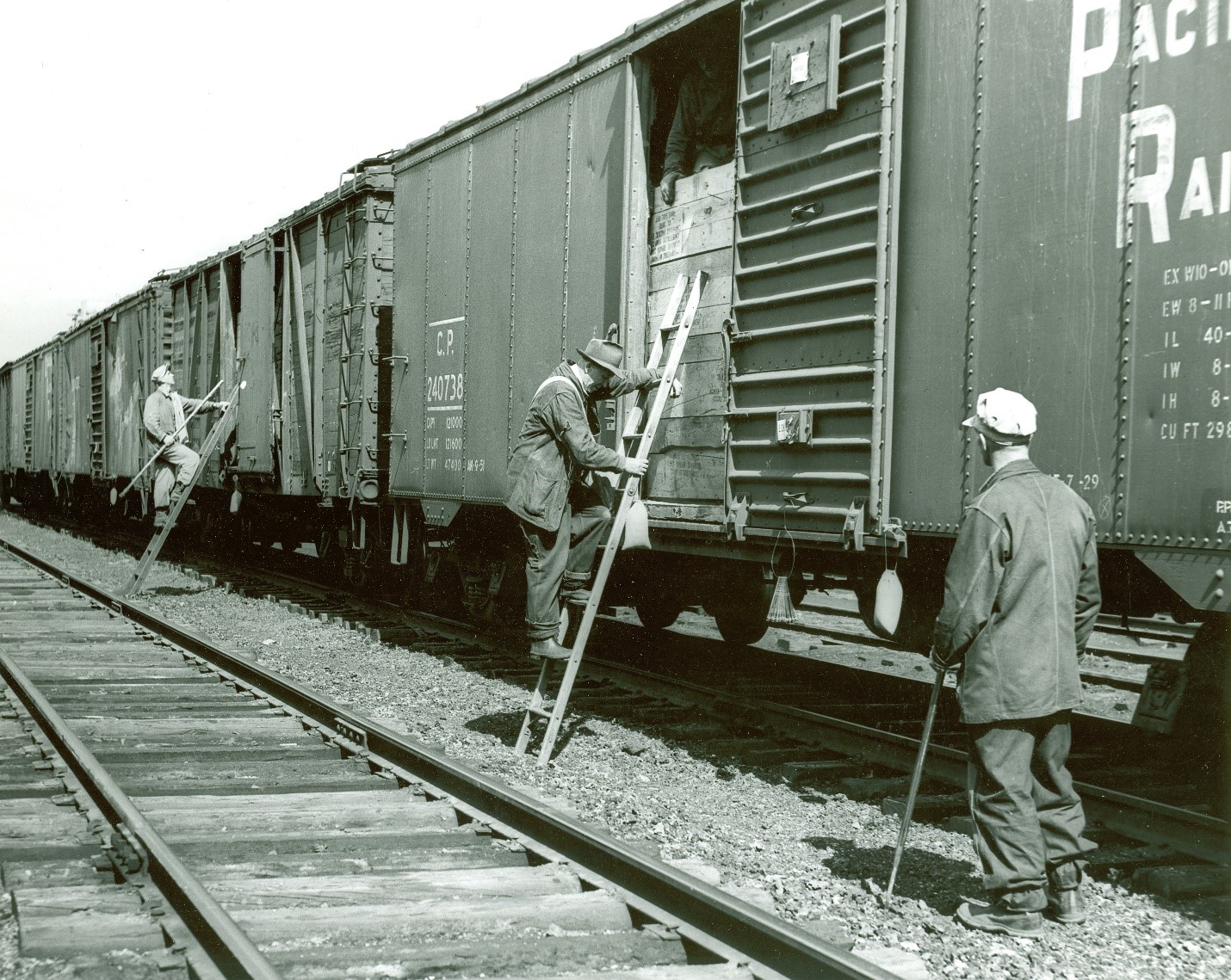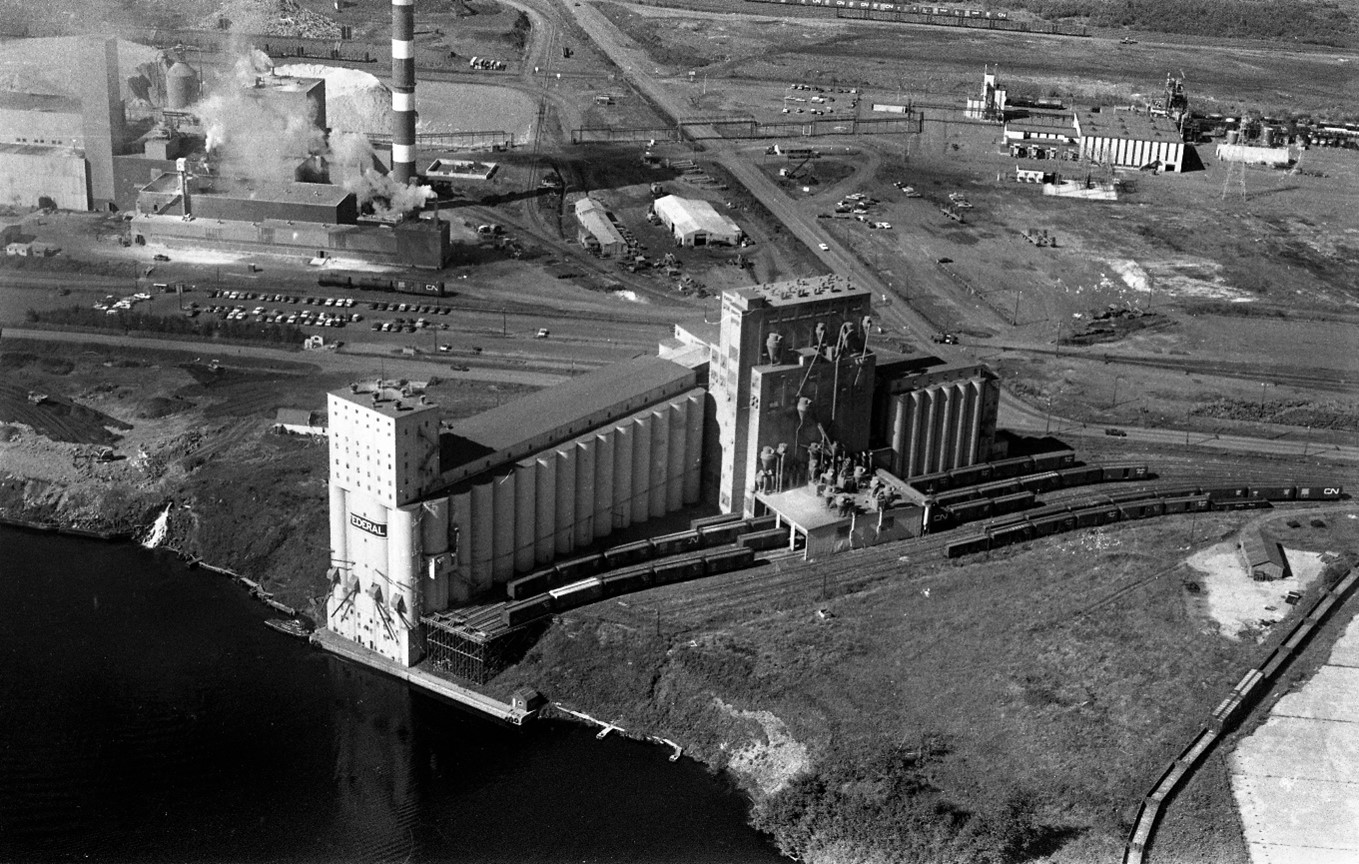Sarah Lorenowich is a Director with Friends of Grain Elevators and Sara Janes is University Archivist at Lakehead University
In 2003, Friends of Grain Elevators’ (FOGE) founding members came together with the shared goal of preserving the slowly fading history of Thunder Bay’s grain industry. Companies amalgamated, grain elevators were slated for demolition, and critical historical information about the port’s accomplishments—and the people who achieved them—was being lost. Few in Thunder Bay knew that the city was once the largest grain port in the world, let alone that the grain industry was still active in the harbour. Preservation efforts began with the collection of physical artifacts, documents, and photographs, but these could only ever tell part of the story.
In 2008, FOGE members determined to connect with the grain trade community directly to capture first-hand recollections of the industry. The generation of workers who saw the industry move through massive changes and near-total upheavals in the 20th century were long-retired, but they held critical knowledge of this era that couldn’t be gleaned from official reports. The Voices of the Grain Trade oral history project, as it came to be called, was thus born out of a desire to preserve these stories for future generations and to celebrate the achievements of this under-recognized community, fostering pride not only within Thunder Bay but across Canada.

Between 2009 and 2016, volunteers recorded 233 interviews throughout the country, with the majority of interviewees being located in Thunder Bay and Winnipeg—two of Canada’s major grain hubs. All audio files were stored on a server provided by Lakehead University, who partnered with the organization in the early stages of the project’s development. During this period, volunteers also began transcribing the interviews for increased accessibility and ease of use for research purposes. FOGE stored these files on cloud-based storage software that was only accessible to the organization.
Each interview revealed a new thread that wove the disparate pieces of the grain trade together, solidifying FOGE’s resolve that this complex history was critical to preserve. The interviewees themselves recognized the importance of sharing their stories for posterity, like Mr. O’Connor, the former general manager of Lake Shippers Clearance Association–one of the many organizations that fell victim to the ever-changing industry:
“I think the more we can preserve, the better. Down the road, it’s going to help an awful lot of people, and it’s too bad that some of the younger people don’t have classes where they can learn about this sort of stuff, so that they know what their grandfathers and so on had to go through to make things good for the family and for the world, really. Like I said before, I think it’s a shame that we’re losing so much of this history.”
By 2022, over a decade had passed since the original Voices project began. However, just over half of the interviews had been transcribed, and the collection was still only partially accessible through FOGE’s website. The group needed to not only complete the digitization of the collection, but they needed to find a long-term repository at an institution with the capacity to maintain the collection’s digital integrity. FOGE learned of a program, Library and Archives Canada’s Documentary Heritage Communities Program, that provides funds to help increase accessibility to and awareness of community-focused historical collections. FOGE successfully applied to the DHCP fund and were able to complete the remaining 121 transcriptions in under a year. This final phase of the project also involved reformatting and standardizing existing transcripts and creating accurate and detailed metadata for file discoverability.
To address preservation of these invaluable records, FOGE partnered again with Lakehead University, whose archives became the chosen repository for the project’s digital audio files, transcripts, and administrative documents. The Lakehead University Archives works with the Ontario Council of University Libraries in digital preservation work, making use of their Ontario Library Research Cloud and Permafrost system, a hosted instance of Archivematica. The digital files, once ingested, have regular fixity checks, and can be migrated to a new format should that be necessary. Servers are located in multiple locations fully within Ontario, and all equipment is owned and maintained by public universities within the province. FOGE maintains its own copies of the digital collection particularly for access and use, but the copies held by Lakehead are available should they be needed.

FOGE and Lakehead University’s preservation work through the Voices of the Grain Trade project has received regional and national recognition, winning the Ontario Historical Society’s President’s Award and being shortlisted for the Governor General’s History Award for Excellence in Community Programming. These achievements would not have been possible without the enthusiastic participation of the 216 interviewees who shared their stories of life and work, nor without the passion of FOGE’s volunteers and its community partners–Lakehead University, the Lakehead Social History Institute, and the Documentary Heritage Communities Program. All interviews from the collection are publicly accessible on FOGE’s website, http://www.friendsofgrainelevators.com/voices, in both audio and PDF transcript formats.

